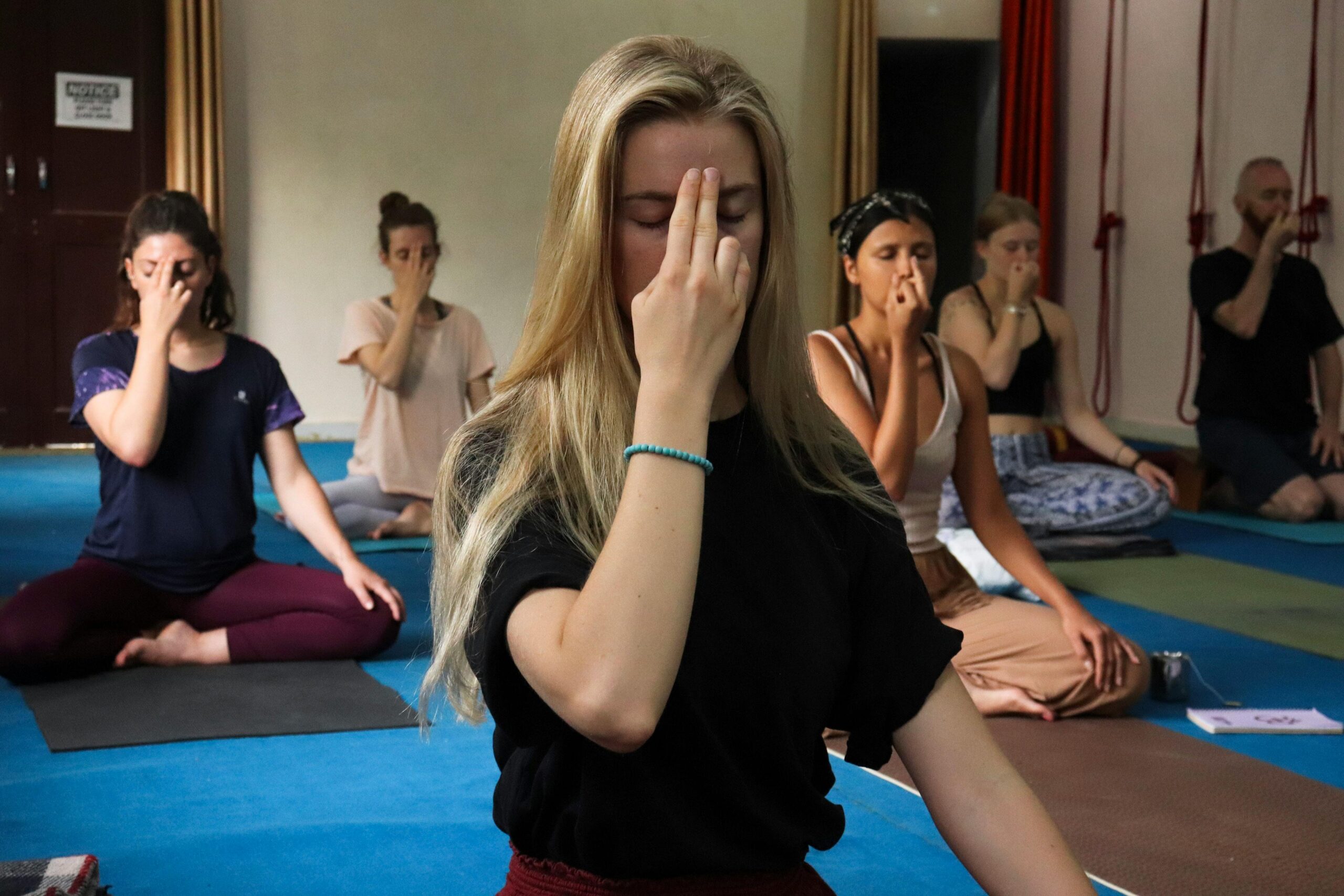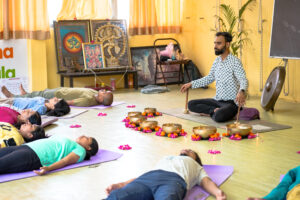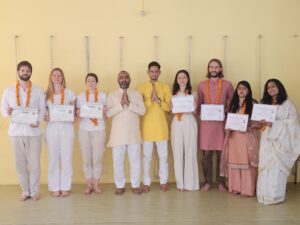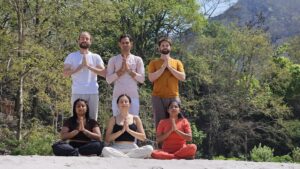Yoga has become a popular practice worldwide, celebrated not just for its physical benefits but also for its mental and spiritual rewards. With so many yoga schools and studios offering a variety of classes and teachings, choosing the right one can feel overwhelming. Here’s a comprehensive guide to help you navigate this decision and find the best fit for your yoga journey.
Understanding the Different Types of Yoga Schools
Yoga schools vary widely in their approach, teaching styles, and philosophies. Here are some common types:
1. Traditional Yoga Schools
These schools focus on ancient practices and philosophies, often incorporating elements from the original texts of yoga, such as the Yoga Sutras. They provide a deeper understanding of yoga as a lifestyle, not just a physical practice.
2. Modern Yoga Studios
These are typically more casual and may offer a variety of styles, from Hatha to Vinyasa to Yin. They cater to a broad audience and often emphasize the physical benefits of yoga.
3. Yoga Teacher Training Courses
Consider a yoga school offering a comprehensive yoga teacher training course if you want to teach yoga. These programs not only cover asanas (postures) but also delve into anatomy, philosophy, and teaching methodologies.
Also Read: Key Factors to Consider When Choosing a Yoga School
1. Define Your Goals
Before you start exploring yoga schools, take a moment to reflect on your personal goals. Are you looking to improve your flexibility, build strength, or find a deeper connection to your inner self? Perhaps you want to learn how to teach yoga or explore meditation more profoundly. Understanding your objectives will help you identify which school aligns best with your aspirations.
2. Research Different Styles of Yoga
Yoga encompasses a wide range of styles, each with its philosophy and approach. Some popular styles include:
Hatha Yoga: Focuses on physical postures and is often a gentler introduction to yoga.
Vinyasa Yoga: Characterized by fluid movements that are synchronized with breath, creating a dynamic flow.
Ashtanga Yoga: A rigorous style that follows a specific sequence of poses and is physically demanding.
Bikram Yoga: Conducted in a heated room with a set series of 26 poses, promoting detoxification and flexibility.
Yin Yoga: A slower practice focusing on deep stretching and long-held postures, beneficial for relaxation and mindfulness.
Familiarize yourself with these styles to determine which resonates with you, as this will significantly influence your choice of school.
Also Read: Hatha Yoga vs. Ashtanga Yoga: A Comparison of Styles and Techniques
3. Consider the School’s Philosophy
Yoga is as much about philosophy as it is about physical practice. Different schools may emphasize various aspects, from spirituality and mindfulness to physical fitness. Research the core values and teachings of the school you’re considering. Do they resonate with your beliefs and intentions? A school that aligns with your values can enhance your overall experience and growth in practice.
4. Look for Qualified Instructors
The yoga instructor can make or break your yoga experience. When researching schools, look for information about their teaching staff. Ideally, instructors should be certified and have substantial experience. Many reputable yoga schools offer teacher training programs, and their instructors often have completed such training. Reading reviews and testimonials can provide insight into their teaching styles and effectiveness.
5. Explore Class Offerings and Schedule
A yoga school’s class offerings and schedule should fit your lifestyle. Check the variety of classes available they offer beginner, intermediate, and advanced levels. Are there specialty classes like prenatal yoga or meditation? Additionally, consider the frequency and timing of classes. A school with a diverse schedule can accommodate your busy life and keep you motivated to attend regularly.
Also Read: How to Become a Certified Yoga Teacher
6. Visit the School
If possible, visit the schools on your shortlist. Many studios offer free or discounted trial classes, allowing you to experience the environment and teaching style firsthand. Pay attention to the atmosphere: is it welcoming and inclusive? Do the instructors and staff seem knowledgeable and friendly? This visit will help you gauge whether the school feels like a comfortable space for your practice.
7. Evaluate the Community
A supportive community can greatly enhance your yoga experience. Engage with other students and observe how they interact with one another and with the instructors. A positive, encouraging atmosphere fosters growth and connection, making your practice more enjoyable. Look for schools that prioritize community events, workshops, and social gatherings, as these can deepen your practice and relationships with fellow yogis.
8. Assess the Facilities
The environment where you practice is essential for your comfort and focus. Take note of the studio’s cleanliness, the quality of mats and props, and the availability of amenities like showers and changing rooms. A well-maintained facility with a peaceful ambiance can enhance your overall experience and make it easier to immerse yourself in practice.
Also Read: Is 200-Hour Yoga Teacher Training Course Enough to Kickstart Your Career as a Yoga Teacher?
9. Consider Cost and Membership Options
Yoga classes can vary significantly in price, so it’s important to find a school that fits your budget. Many studios offer different membership options, such as drop-in rates, class packs, or unlimited monthly memberships. Check for discounts or specials for new students. Keep in mind that while cost is a factor, the value of a supportive and enriching environment often outweighs a lower price point.
10. Trust Your Instincts
Finally, trust your instincts. After considering all the factors goals, styles offered, the instructors, and the overall vibe of the school what feels right for you? Your yoga journey is personal, and finding a place that resonates with you is essential for nurturing your practice.
Conclusion
Choosing the right yoga school is a vital step in your journey toward physical and spiritual wellness. By defining your goals, exploring different styles, and evaluating instructors and communities, you can make an informed decision that supports your practice. Remember, yoga is about personal growth and connection, so find a school that inspires you and aligns with your values. With the right school, your yoga journey can flourish, offering profound benefits that extend beyond the mat.
Upasana Yogshala, a yoga teacher training school in Rishikesh meets all the above expectations. They provide all 100 hr, 200 hr, 300 teacher training courses and other yoga retreats – 5 days, 7 days and 15 days yoga retreat in Rishikesh. Most of the people who want certification in yoga teacher training opt for 200 hr yoga teacher training course in Rishikesh. And the people who want to keep themselves healthy and fit or keep their stress and depression away opt for 15 day yoga retreat in Rishikesh. Call Upasana Yogshala at +91 9719867630 or visit the website to Register now with our yoga programs.




